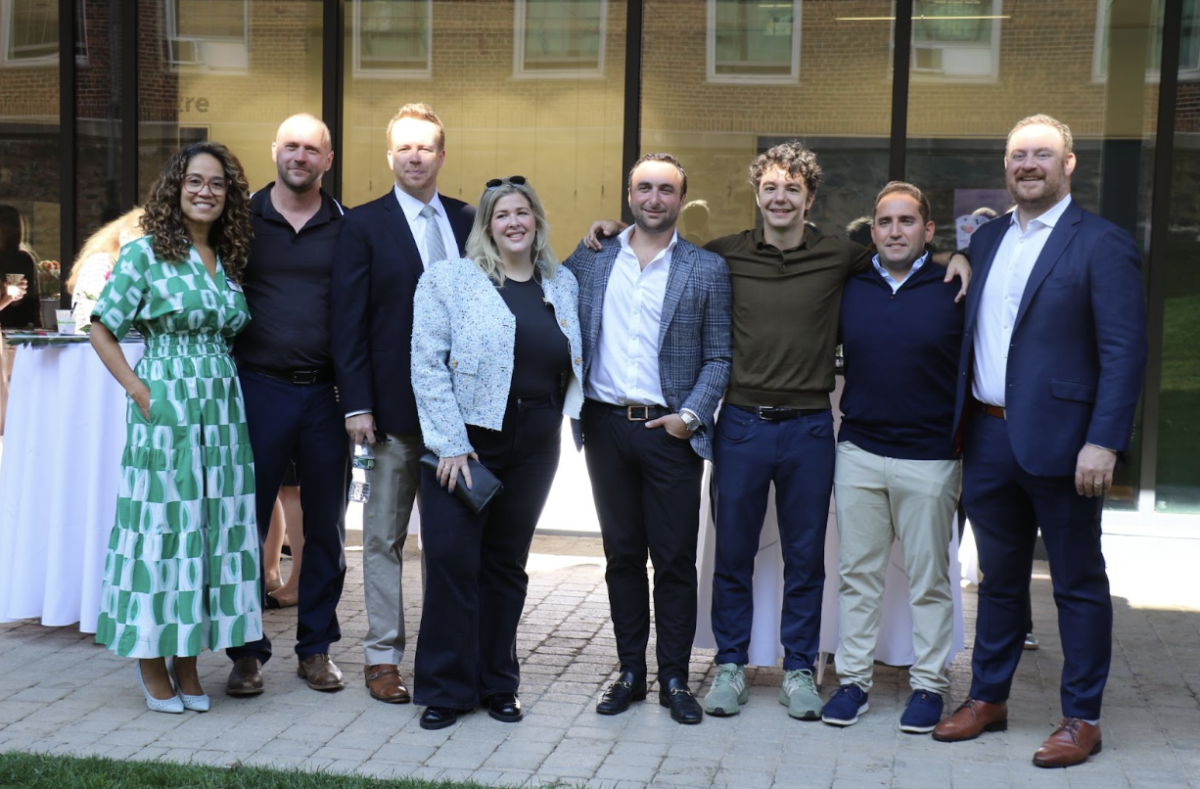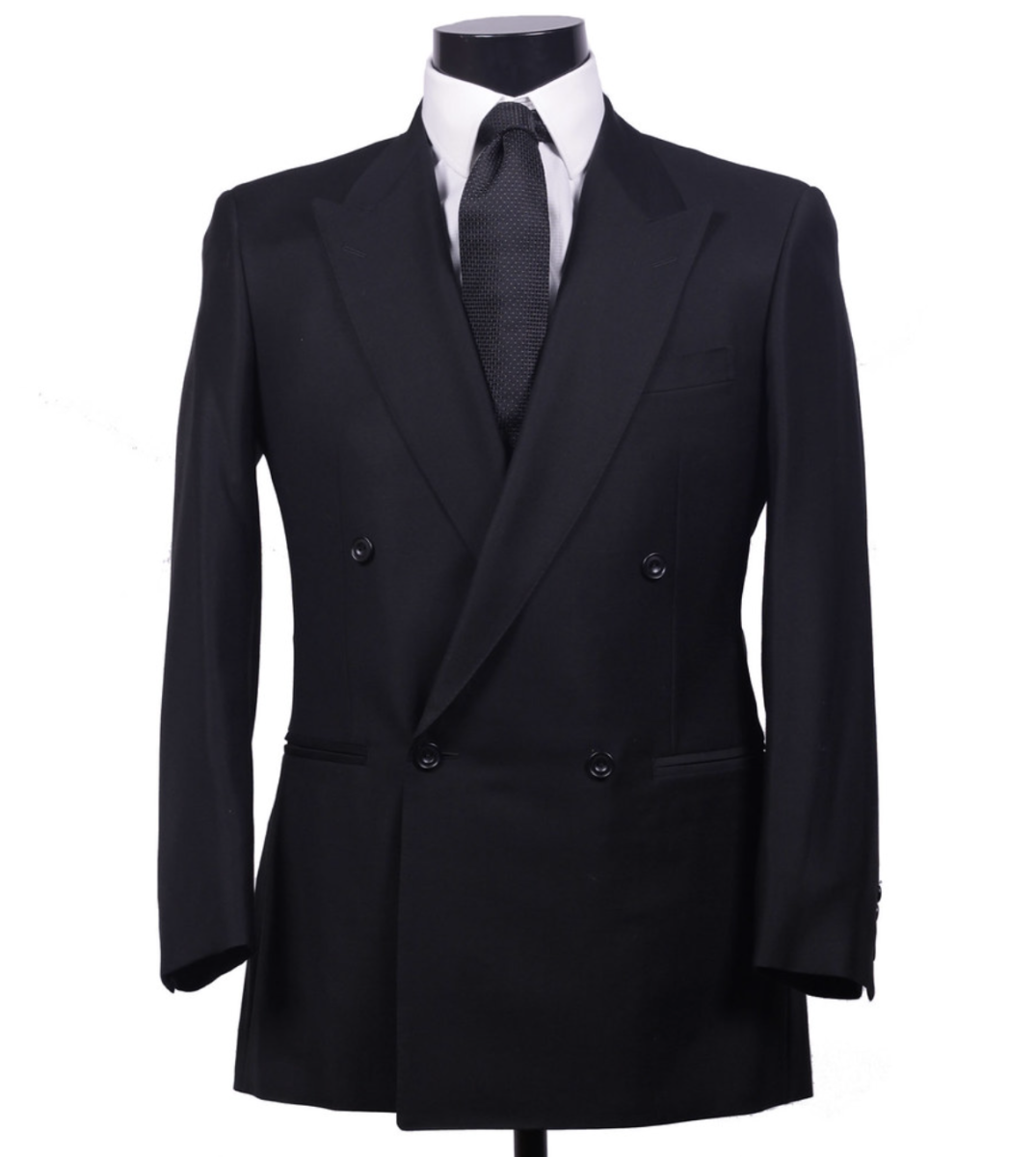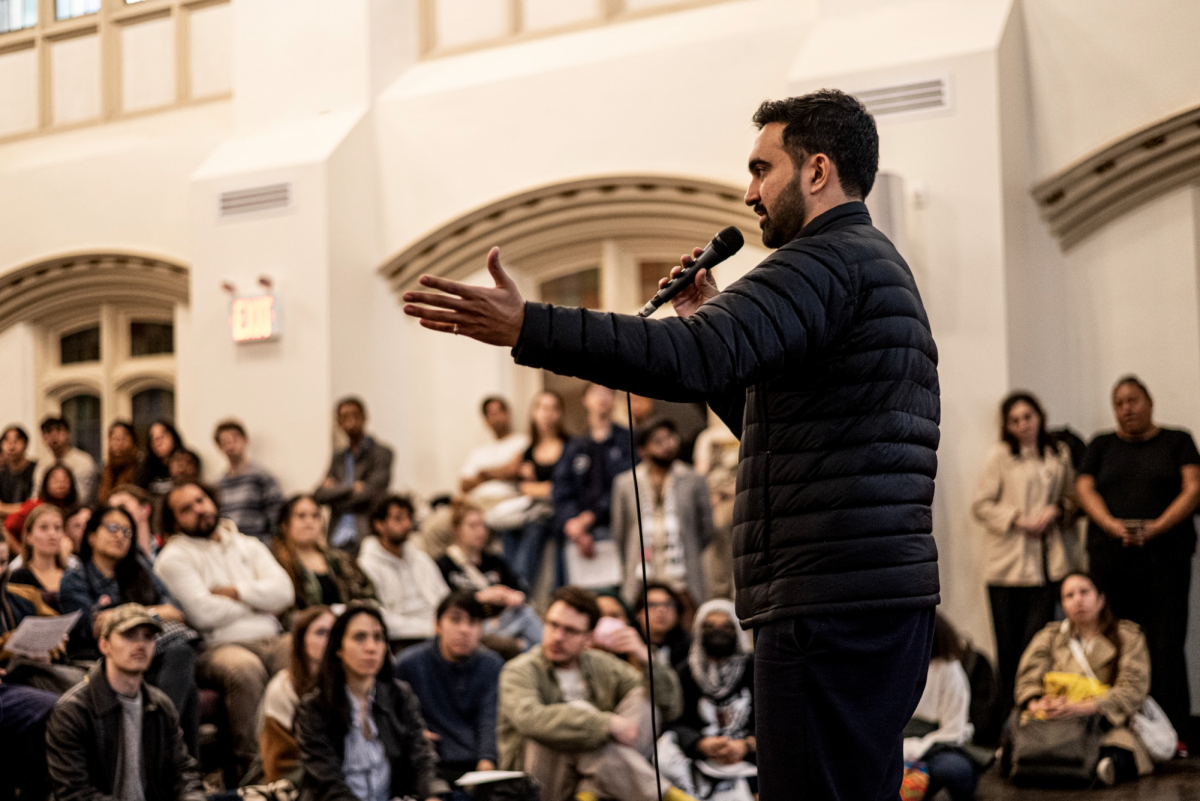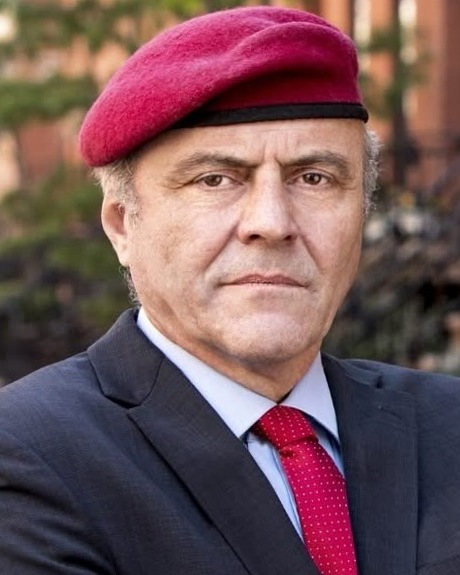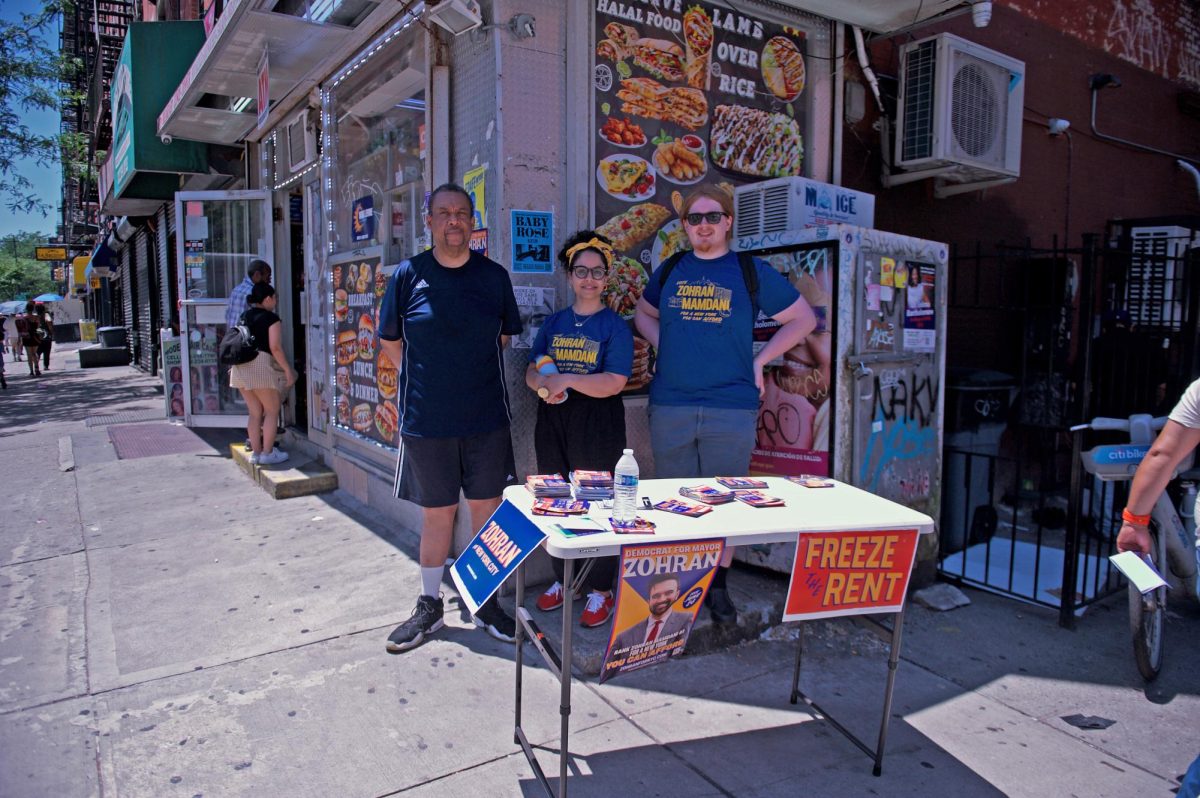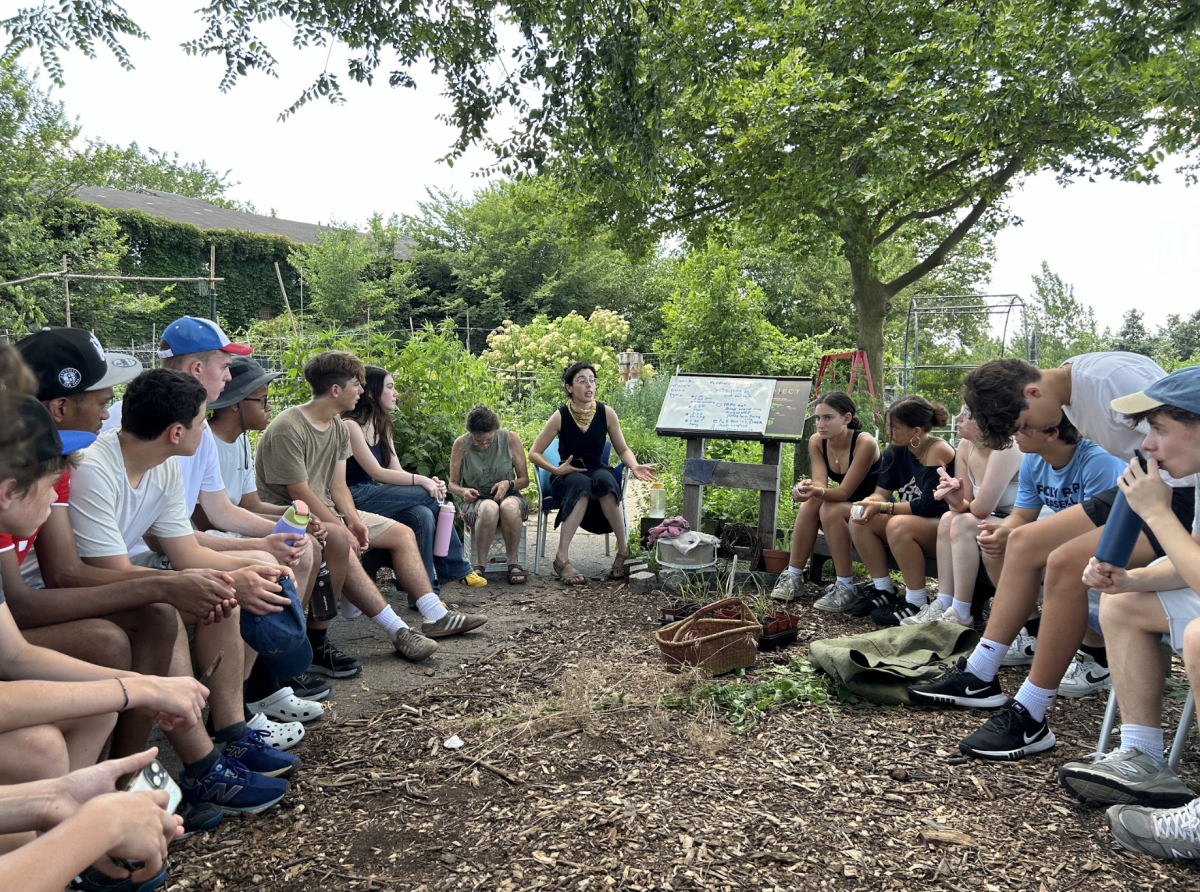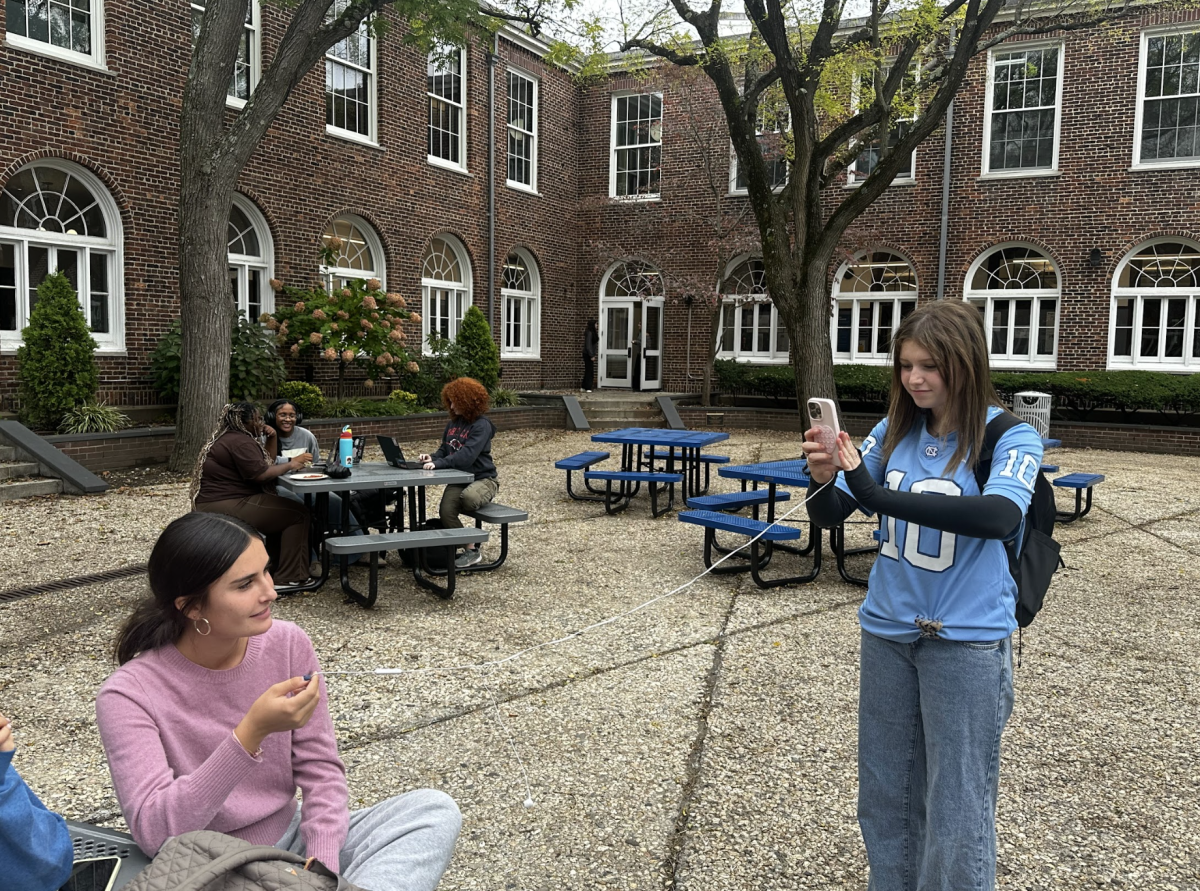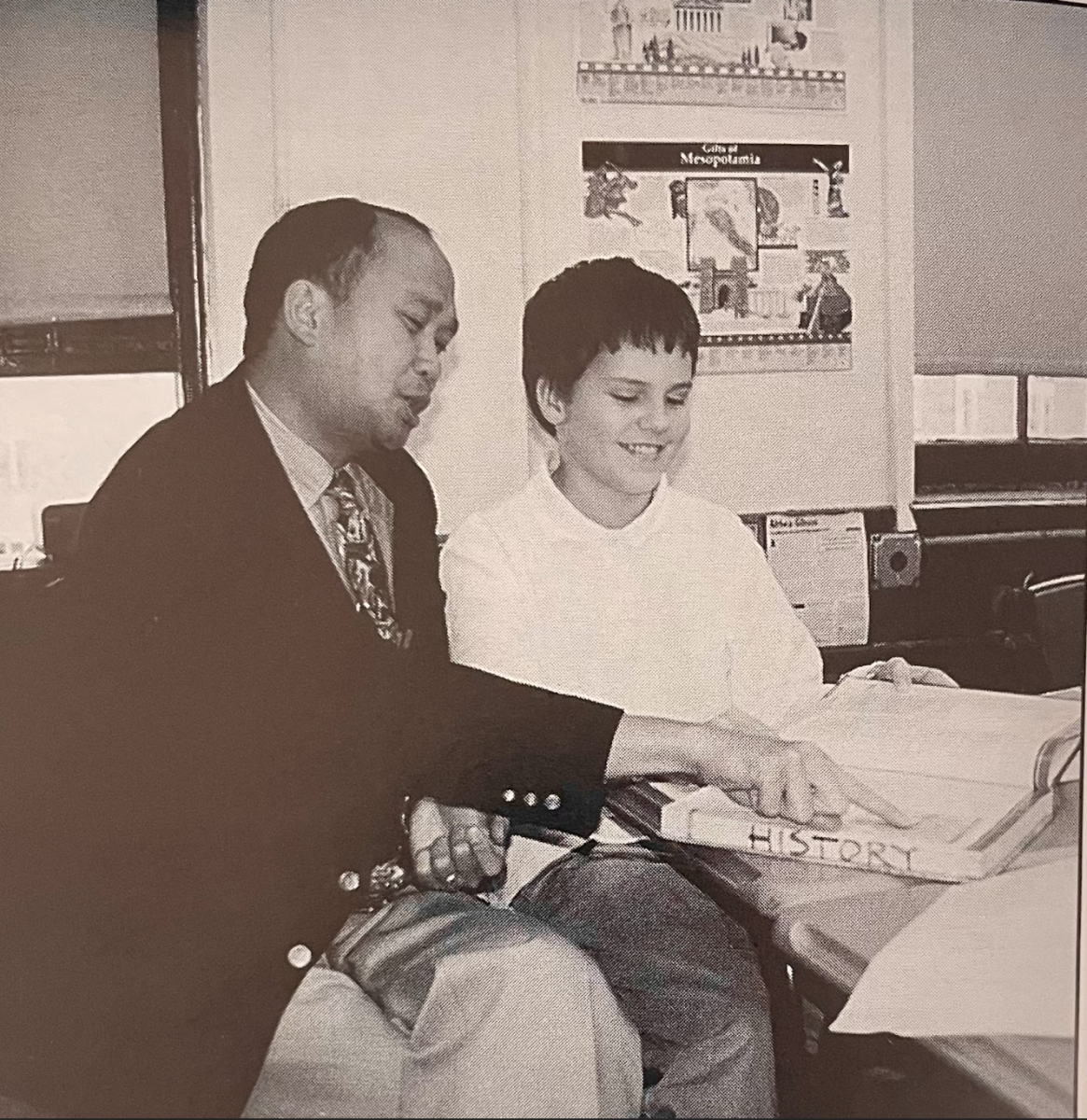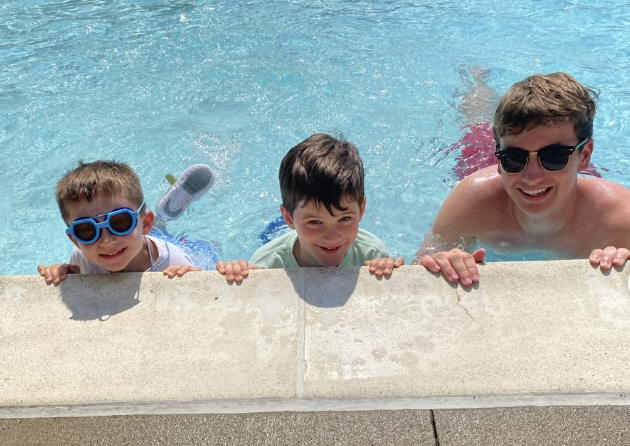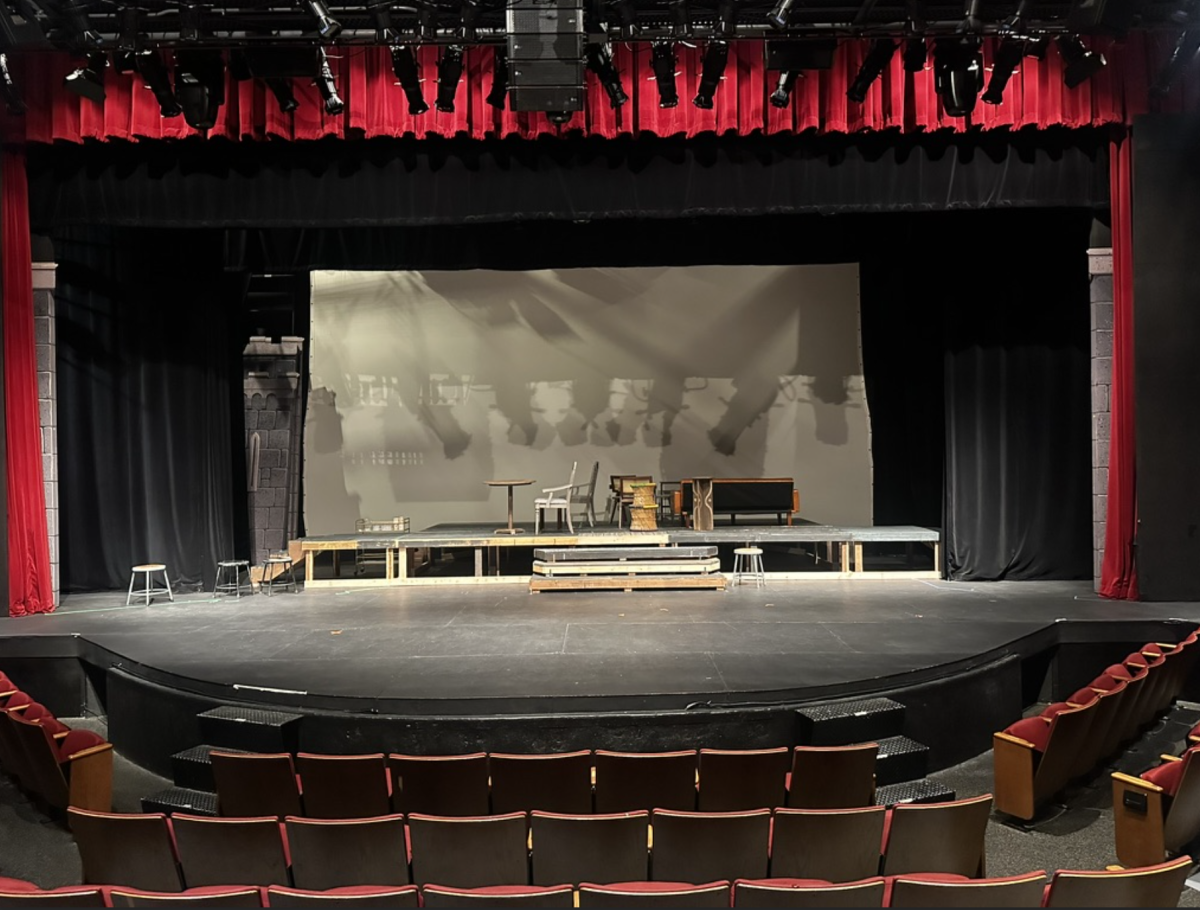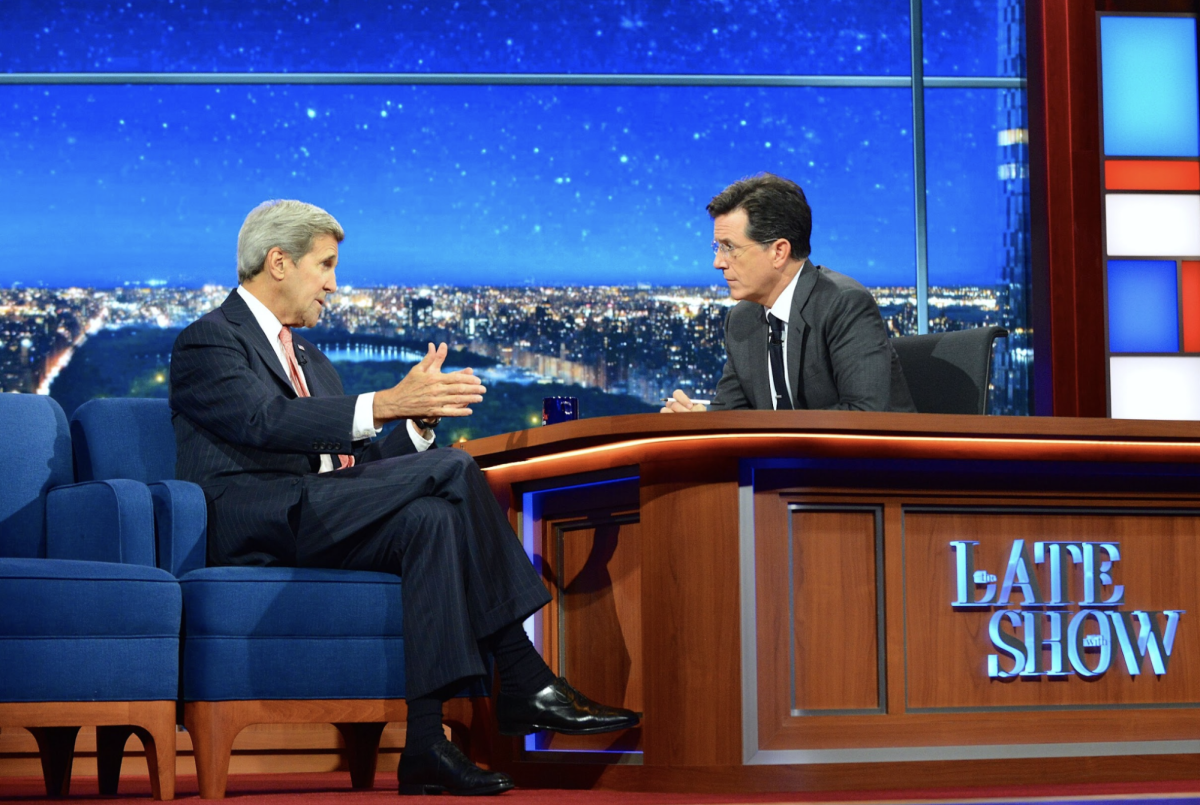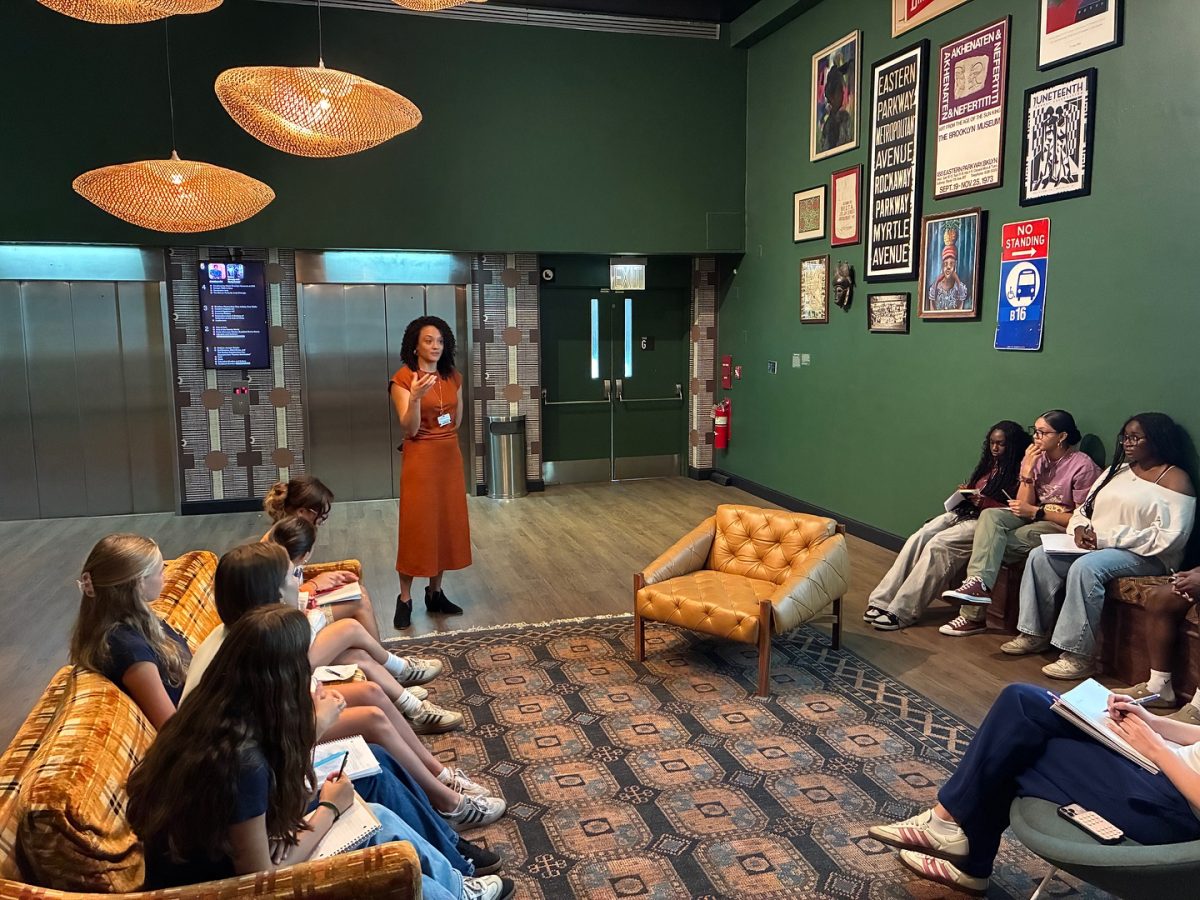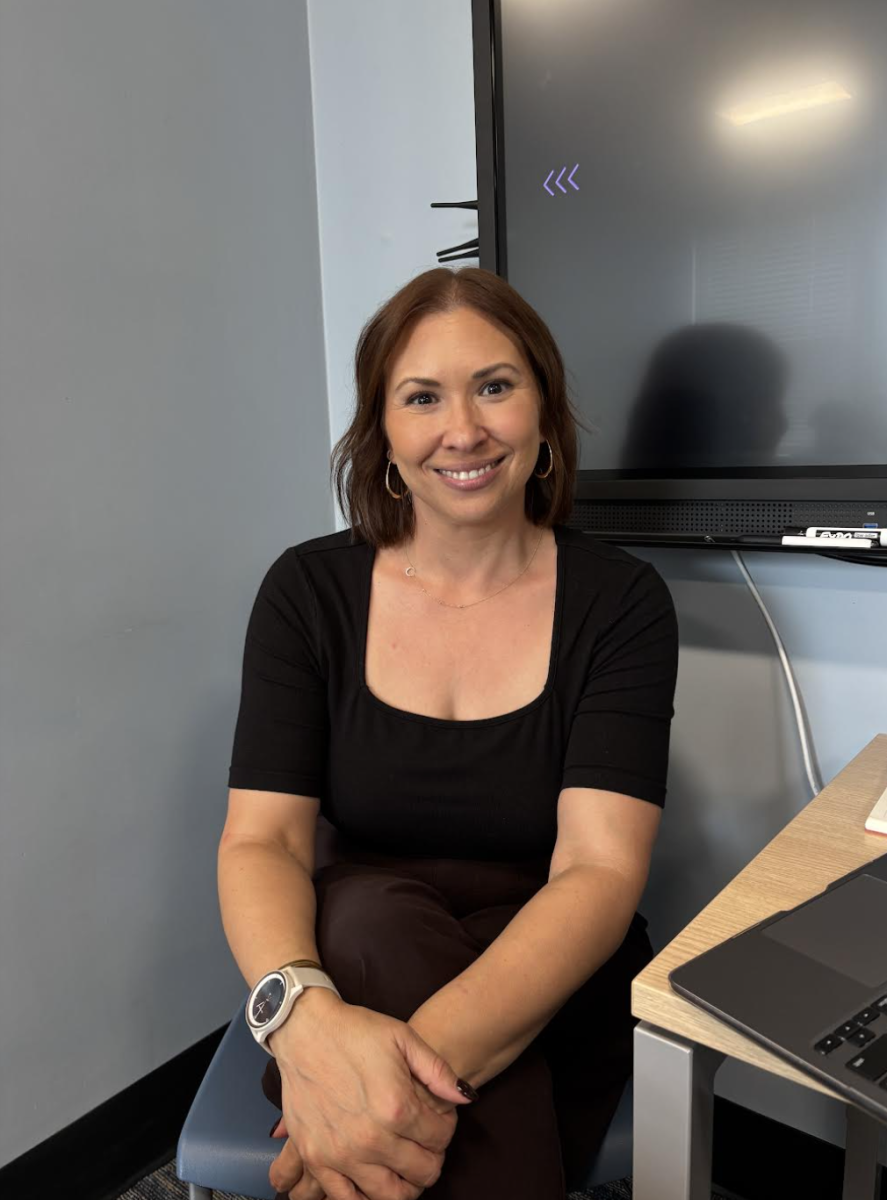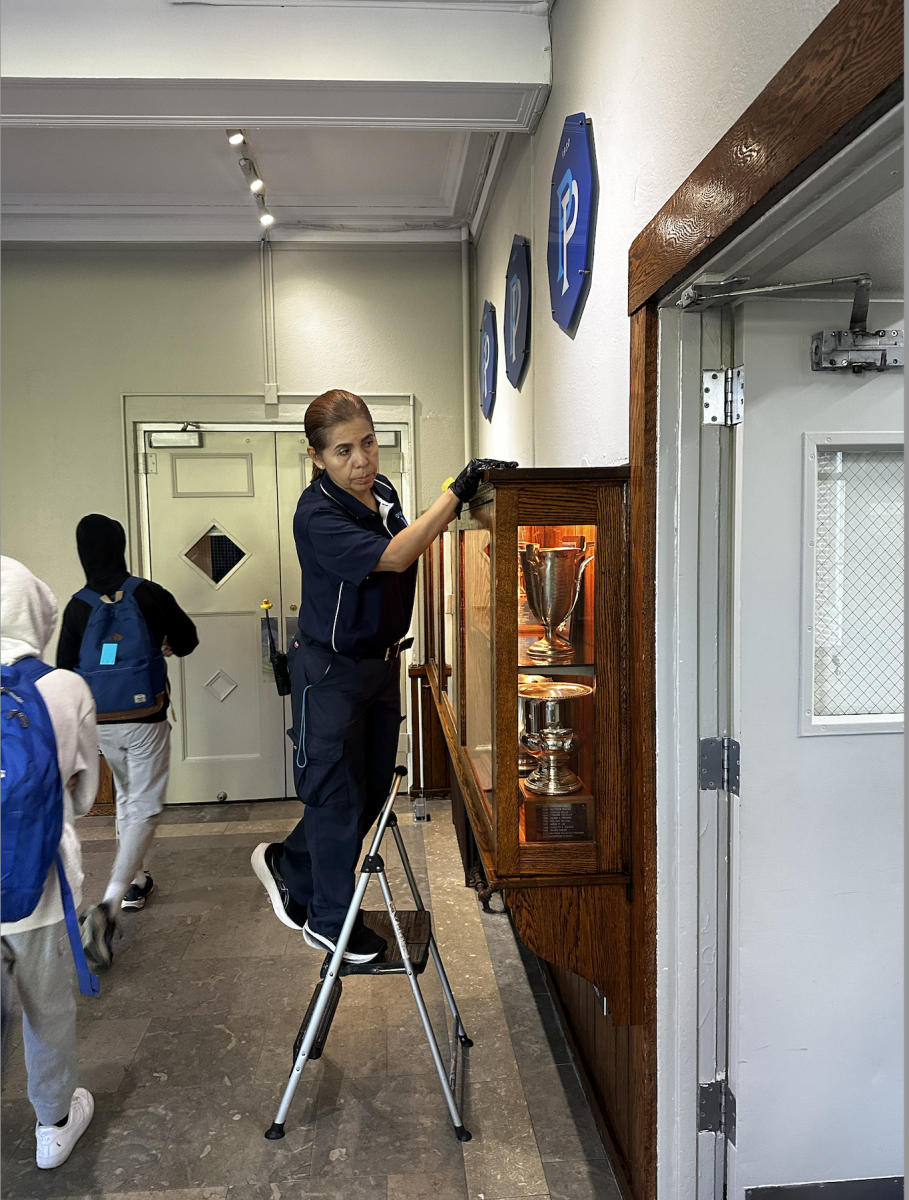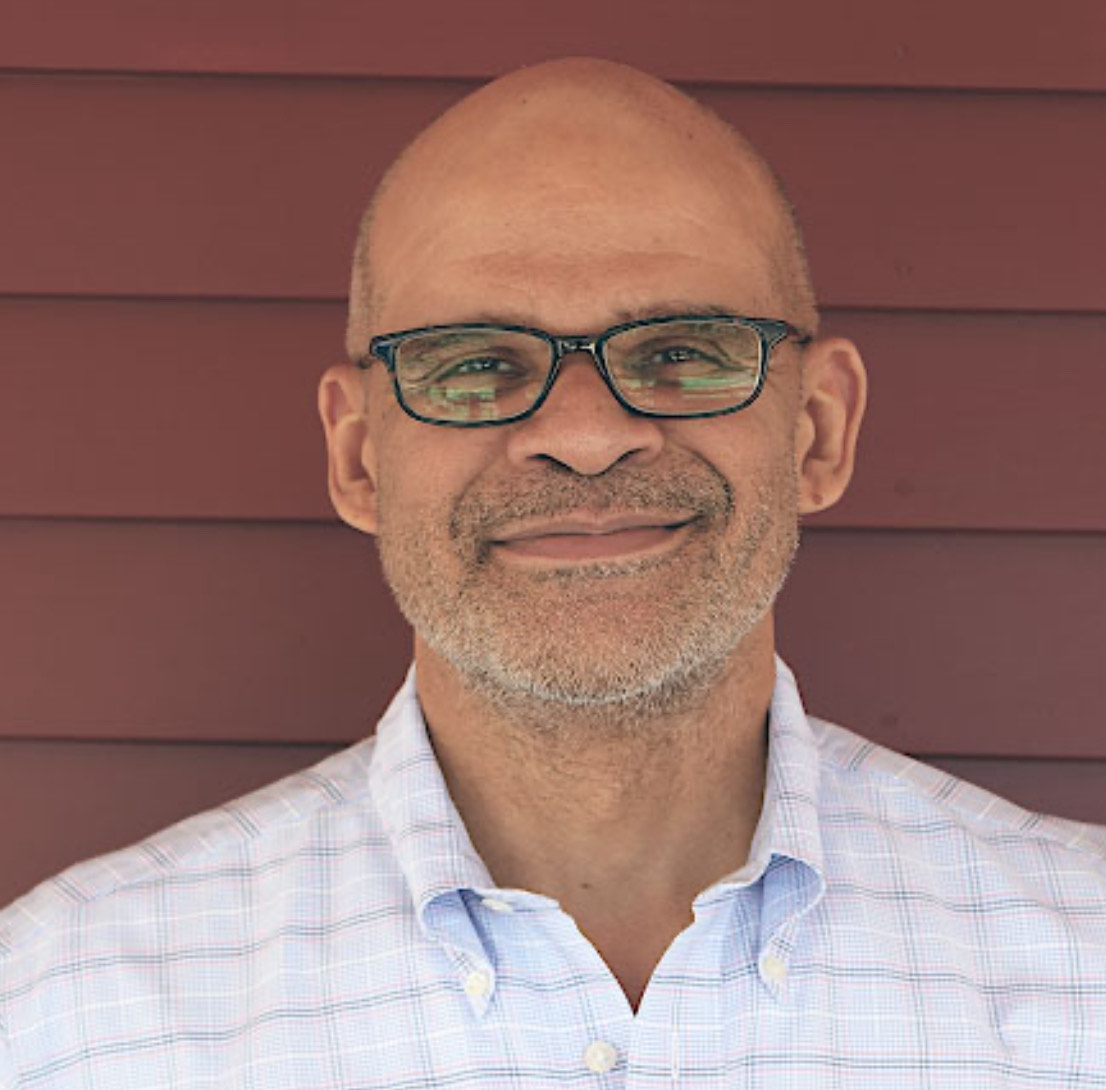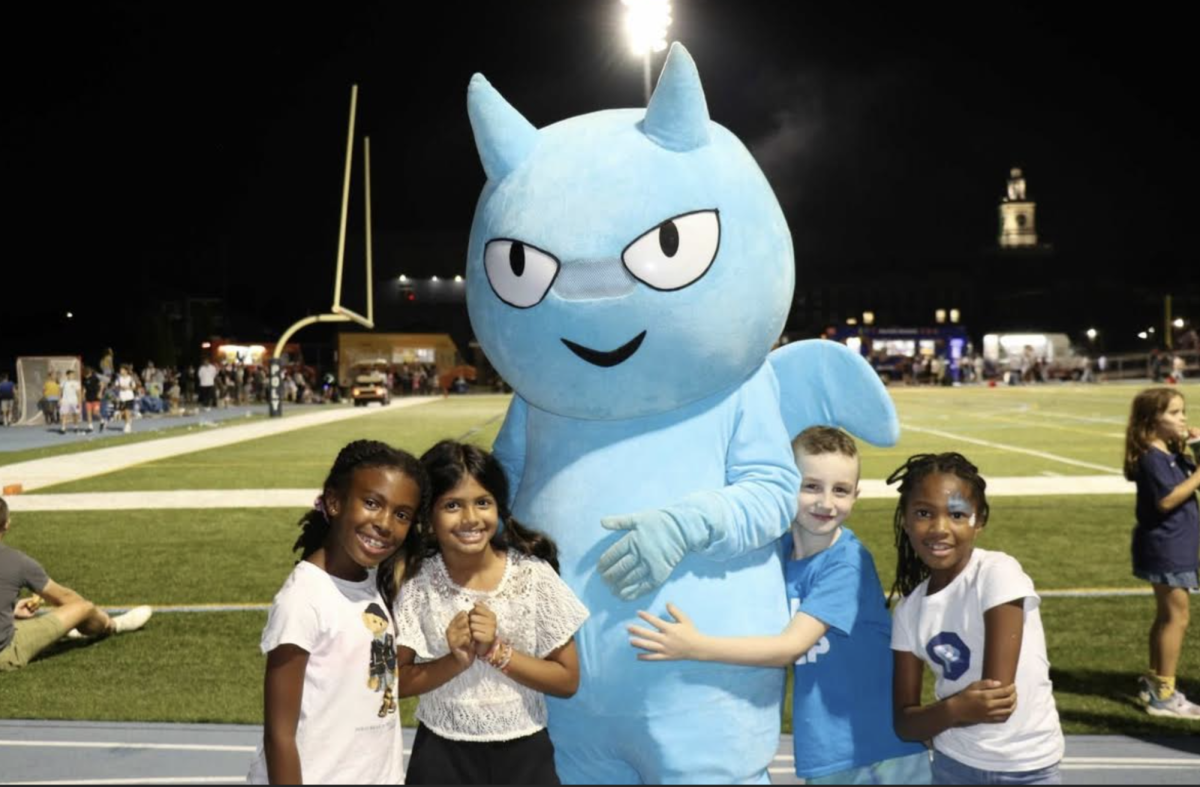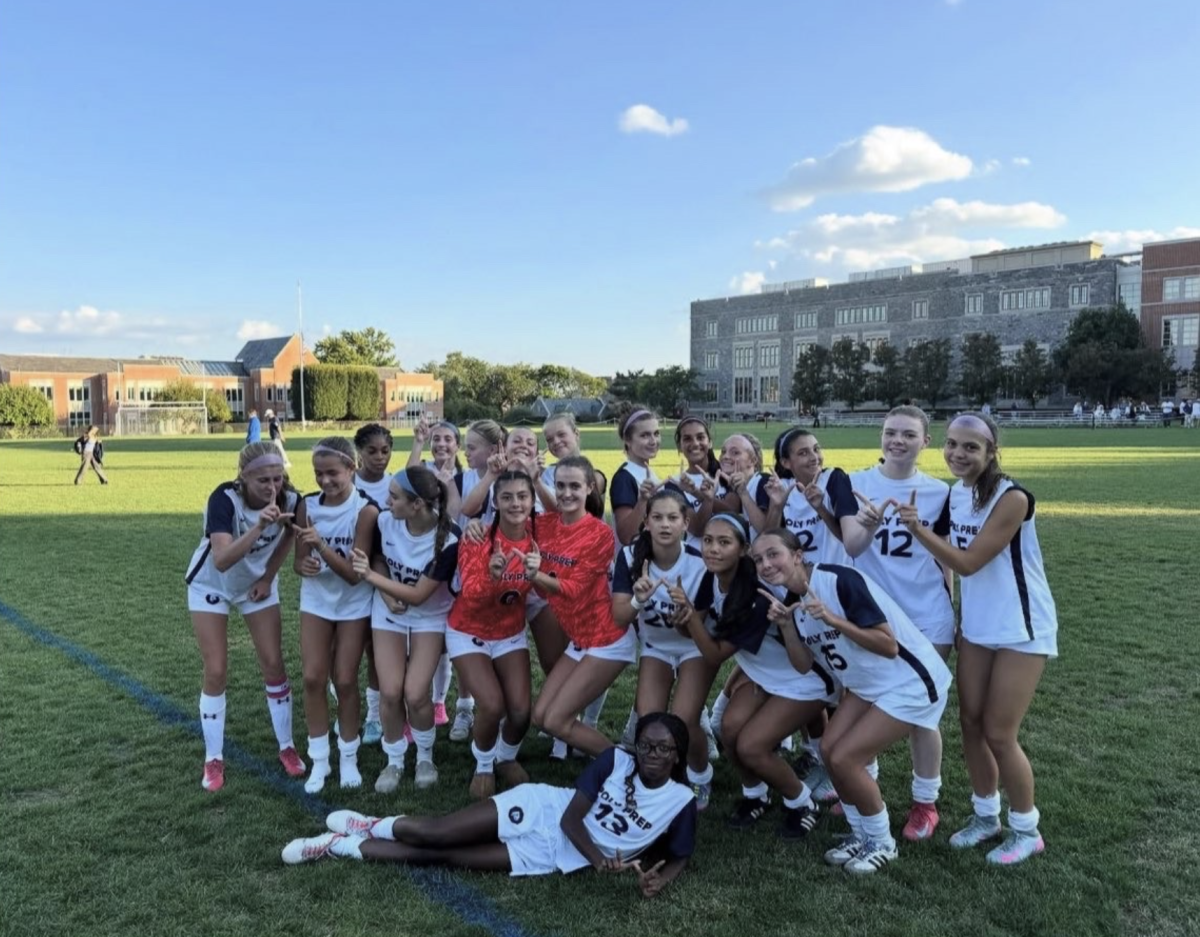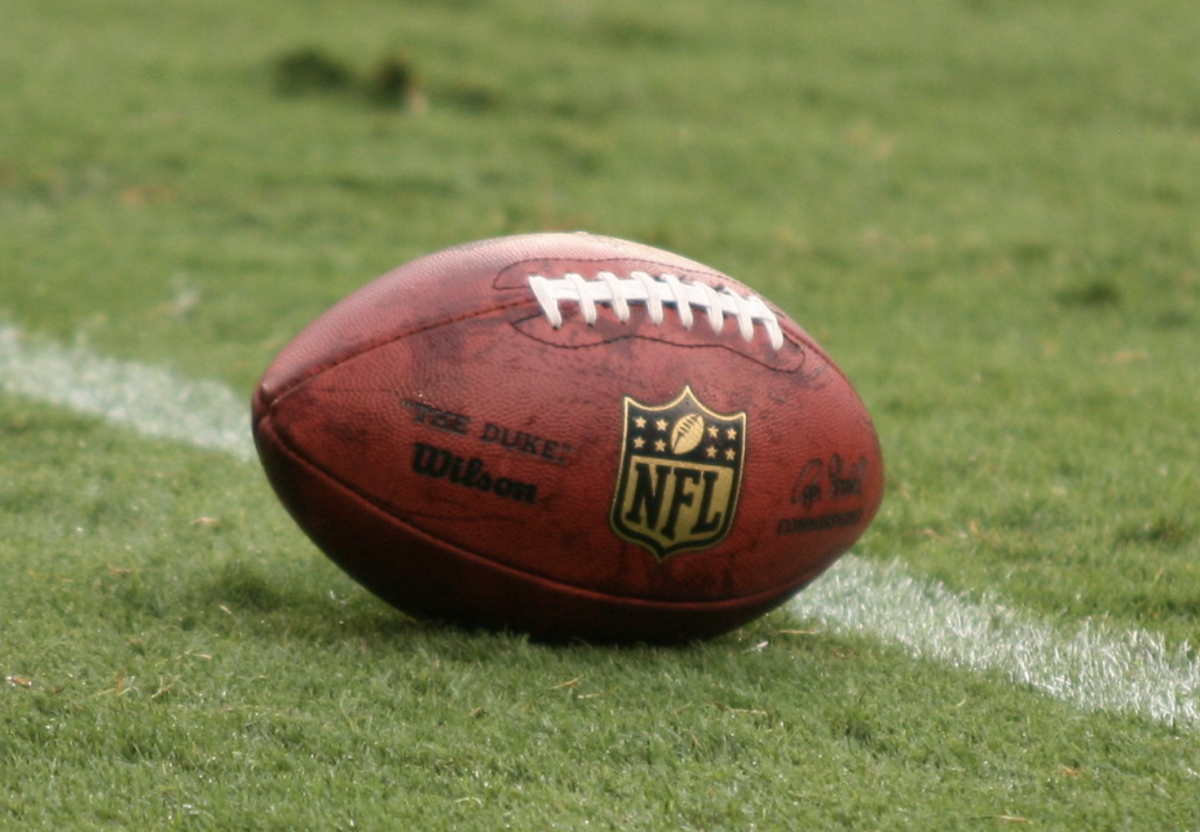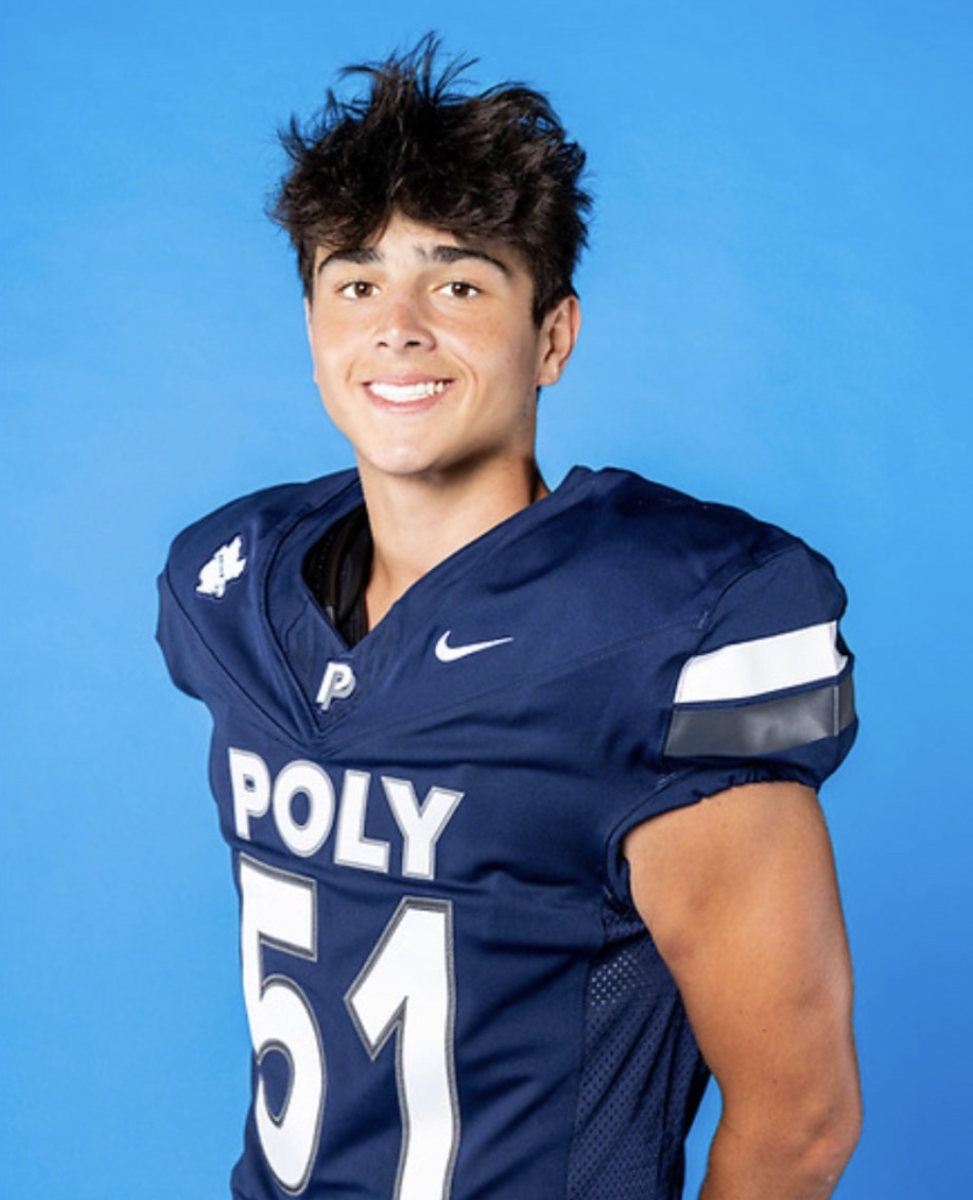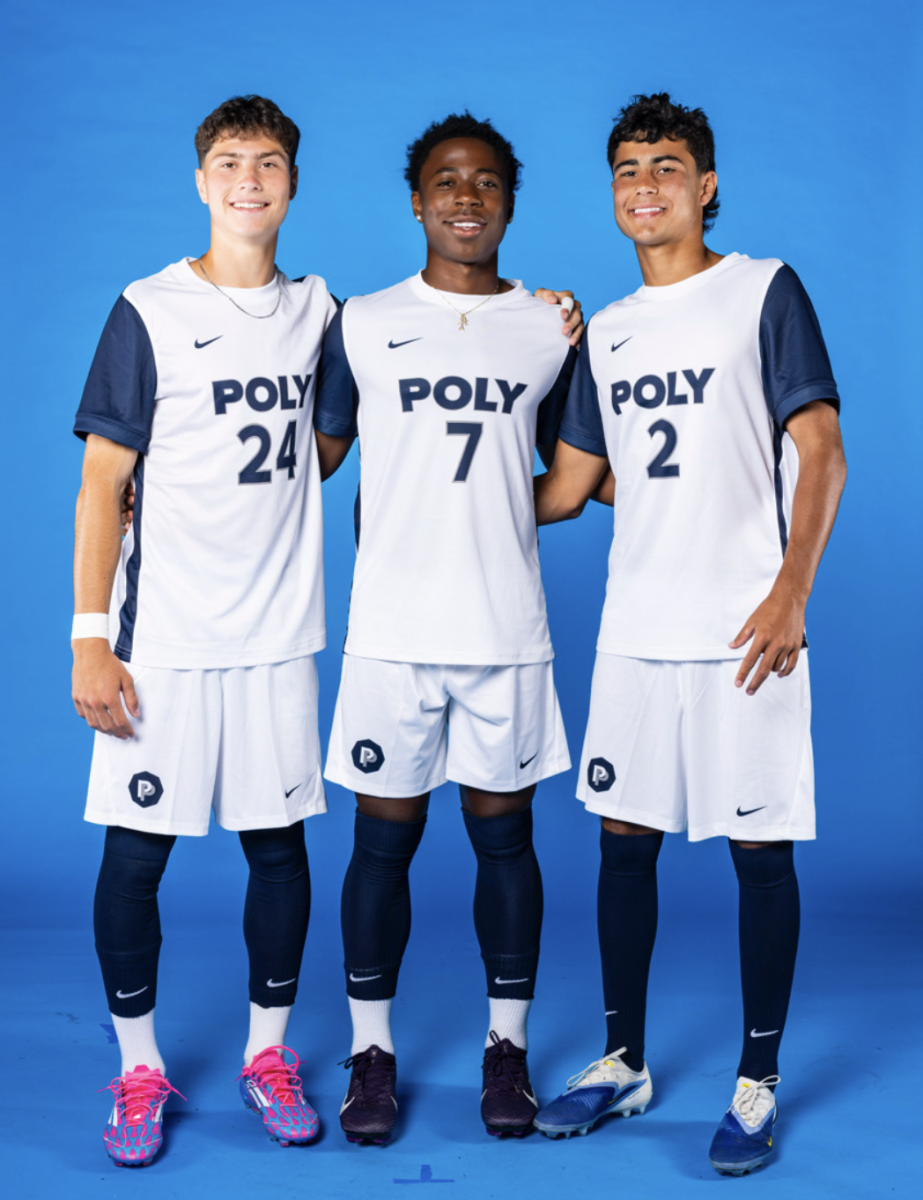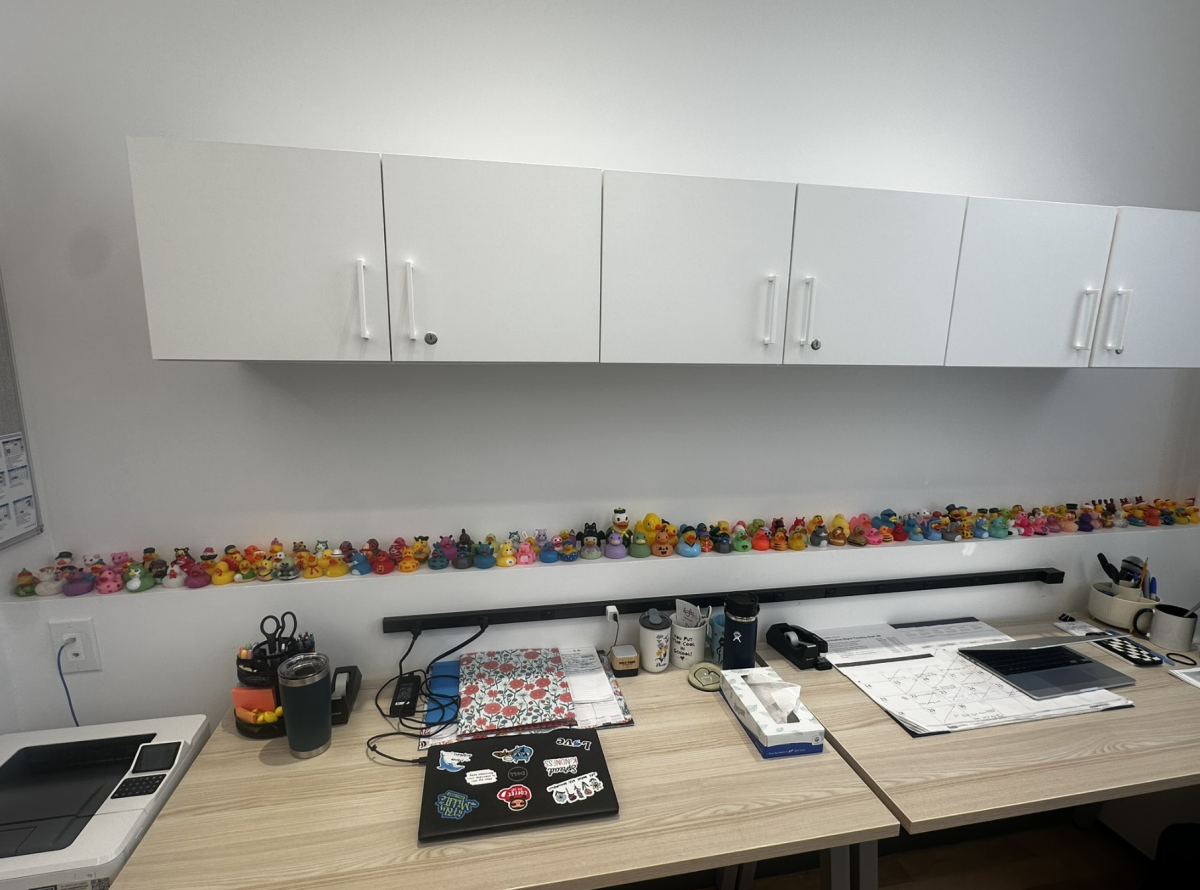At the beginning of first period, the Novogratz Building is overrun by screaming unattended middle schoolers. Students run around playing impromptu games of tag as playful shoving matches erupt between gangs of friends. If someone told them to stop, it’s hard to imagine that anyone would listen. However, seconds later, the horde of unruly tweens goes silent as Richard James, their PE teacher, walks in carrying his trademark aura of intensity and confidence that Poly athletes fear and admire.
James lets them know that it’s time to get started as everyone walks down the stairs to the waiting area in front of the lockers and lines up. One student stays behind, telling James that he feels sore. James pauses for a second before asking, “Can you walk?” When the student nods yes, James doesn’t miss a beat, “Then you can practice.” This mentality is evident in everything James does, from the way he walks to the way he coaches. He believes that “the most important quality [for athletes] to have is showing up every day to work hard.”
James was once at the pinnacle of sports. He was part of the world championship winning Jamaican track team and represented Jamaica in the Olympics in 2004. Now, as a coach at Poly Prep, his impact on the Poly community can’t be understated. By pushing his passion and drive, James helps to transform what he describes as “unathletic kids” into brilliant athletes, inspiring students to reach their highest potential through hard work and dedication.
Standing at just about 5’ 9”, James wasn’t the most naturally gifted athlete. He first started running track at 13 years old and his early attempts were not met with encouragement. “[The] first message from someone who watched me do track was to quit and that I wasn’t fast enough.” However, growing up in Jamaica, James knew running was the ticket out of his socioeconomic circumstances. James understood that “Jamaica is a small island, but we are a charismatic people. It has helped me to become a lot more resilient within my day to day system.” James goes on to mention the Maroons, a group of black men and women who escaped enslavement in the New World, who he credits with giving him some of his spirit. “Being a member of the Maroons, I am a strong willed, strong person… It also helped a lot with me being an athlete because knowing the stories of my ancestors and how they were able to overcome the terrain, the struggles of tyranny, I was able to build a better athletic system within myself.”
James’ performance improved significantly in high school, as he became capable of completing a 48 second 400 meter dash. In college, he did even better, getting his time down to 45.66 seconds and coming within seconds of the world record. This success would eventually lead him to join the Jamaican national team and win the gold in the world championship. James describes winning the world championship as something that changed the way he thought about sports. James exclaimed, “Anything is possible!”
Although James made it to the Olympics, he described the experience as “one of my biggest disappointments.” After working for eleven years, James missed out on the opportunity to actually run in the Olympics when his team was unable to qualify for the finals. Although the loss was painful, he feels that it was necessary for his growth.
Following the disappointment of the games, James shifted his path once again, transitioning from athlete to coach. He had experience coaching and loved encouraging kids to be the best version of themselves. The Olympics was a major turning point in his life. “The pain of not achieving is a constant pain that you don’t get away from and I don’t want anyone else to share this pain with me.” Although he is still disappointed, James is happy with the path he chose. “If I had to do it all over again, I wouldn’t change a thing… I probably wouldn’t have ventured on this amazing path of refinement and development.”
His immense success in the sport led to many coaching offers from many different schools. Despite receiving offers to coach D1 colleges, James said that his prior visit to Poly is the reason he chose Poly, “As an undergrad student, I got the opportunity to show up on campus, and I met high perfection. Che Chavez and a few other notable black athletes had conversations with them, learned that they were really, really poised and ready to become great. And I fell in love with that.” He went on to explain how Poly provides him with the ability to show children that they can be athletic. “Poly is a great place where, if a child wants to be special, there is a resource… I felt that it was necessary at this point in my life to teach kids that they are enough and they can be great if they are consistent with their training and if they continue to just accept that they are not perfect and just grow from it.”
James is aware that nobody is extraordinary right away and that greatness is the result of perseverance. “Poly students are not special,” he said, “and that is one of the things that they have to recognize. The work required for them to get better is the same work required for anyone to get better. James also emphasized repeatedly during the interview that “the most important quality for anyone to have is the willingness to get better, the understanding that it is a long-term athletic development process, and lastly, show up every day to work hard.”
Although sometimes James may seem like an intimidating or scary coach, he wants Poly athletes to be their best. His assistant coach Jillian Wojcik, who is also his best friend, described him as “very hard on the outside, but he has a soft interior. I think he tries to scare you guys first, but he definitely wants all of you to succeed, to win, and to do the best that you guys can do.”
The impact James has had on Poly is evident in the hard work and dedication the athletes put into their sport. Coach Jill stated, “When we both came in, track and strength and conditioning weren’t a big deal… He [took] kids who wouldn’t necessarily be considered athletes and brought out the athletic side in them.” James has enabled Poly’s track squad to advance past its prior constraints. Athletes who may not have thought of themselves as exceptional athletes before now have confidence in themselves.
Using his impact at Poly as a template, James’ next goal is to change track in America. James described track and field in America as a joke. “In Jamaica,” he explained, “track is king. It is a cultural experience in Jamaica. While here it seems to be punishment.” The New York Times found that the most recent world championship in track had very few viewers compared to other sports, and only “A little more than 2 million people tuned in to NBC to watch the [track] championships.” For reference, the Super Bowl had 113.06 million viewers, nearly 57 times the amount of viewers of the Track World Championship.
James wants to turn track from a pastime to a source of pride and athleticism in America. He is making an effort to alter the perception of the sport in the US by applying his commitment, perseverance, and lifelong expertise from growing up in Jamaica. He is creating a larger program at Poly by recruiting more people and helping athletes reach their true potential.
Since his arrival, the Poly track team has performed well. A recent Polygon article mentioned Poly’s results from the New Balance Nationals, where Poly ran the fastest 1600 sprint medley relay in its history, the second fastest 4×200 in Poly history, and the fastest 100 meter runner in the tournament.
James has improved the track team substantially and is sure that he can motivate Poly athletes to compete at the highest levels worldwide. James sees “[future] olympians walking around campus every day.” Getting a Poly Prep track and field athlete into the Olympics is his ultimate aim, which he thinks he will accomplish. “Based on where things are, we will have an Olympian coming out of Poly Prep one of these days, as long as I am on campus,” James said with his trademark swagger.

